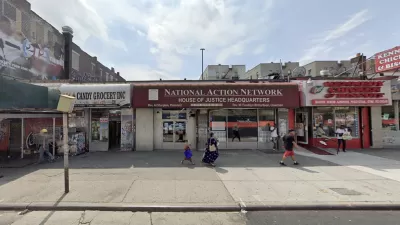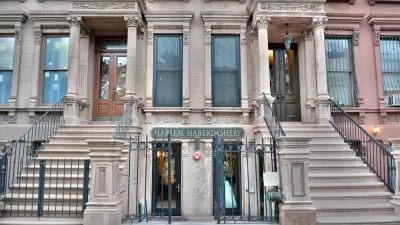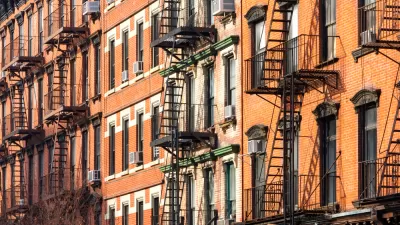Harlem is undergoing a rapid change in terms of demographics and income levels. One real estate broker is at the front of driving this change, and many in the neighborhood are not happy about it. But is this change avoidable?
"All you need to know about the current backlash against Harlem's gentrification, Suggs says, comes down to the happy campers who bought at the right time and the stupid people who didn't. Those who didn't buy, she says, are just jealous, and Suggs never seems to miss a chance to rub it in-even if they're black."
"But what about the people who would like Harlem to stay mainly black, I ask, even if it wasn't always that way?"
"Suggs shuts her eyes and shakes her head. 'You don't have a God-given right to own your house till the end of time,' she says, 'unless you actually own your house. We're not talking about a country like Italy that's for Italians. We're talking about a neighborhood in the United States of America. There's nothing that says Harlem has to be black!'"
"No part of New York has changed more dramatically during the recent historic real-estate boom than Harlem, and no broker has done more to drive that change than Willie Kathryn Suggs."
"Critics say she has wantonly driven up real-estate prices until no one but the richest Harlemites could afford them and, worse, delivered much of the neighborhood into the hands of wealthy whites. Now every new sale she rings up seems to raise a pair of uncomfortable questions: Should Harlem be preserved forever as an affordable haven for blacks? Or should it be sold to the highest bidder?"
FULL STORY: Whose Harlem Is It?

Alabama: Trump Terminates Settlements for Black Communities Harmed By Raw Sewage
Trump deemed the landmark civil rights agreement “illegal DEI and environmental justice policy.”

Planetizen Federal Action Tracker
A weekly monitor of how Trump’s orders and actions are impacting planners and planning in America.

How Atlanta Built 7,000 Housing Units in 3 Years
The city’s comprehensive, neighborhood-focused housing strategy focuses on identifying properties and land that can be repurposed for housing and encouraging development in underserved neighborhoods.

In Both Crashes and Crime, Public Transportation is Far Safer than Driving
Contrary to popular assumptions, public transportation has far lower crash and crime rates than automobile travel. For safer communities, improve and encourage transit travel.

Report: Zoning Reforms Should Complement Nashville’s Ambitious Transit Plan
Without reform, restrictive zoning codes will limit the impact of the city’s planned transit expansion and could exclude some of the residents who depend on transit the most.

Judge Orders Release of Frozen IRA, IIJA Funding
The decision is a victory for environmental groups who charged that freezing funds for critical infrastructure and disaster response programs caused “real and irreparable harm” to communities.
Urban Design for Planners 1: Software Tools
This six-course series explores essential urban design concepts using open source software and equips planners with the tools they need to participate fully in the urban design process.
Planning for Universal Design
Learn the tools for implementing Universal Design in planning regulations.
Jessamine County Fiscal Court
Caltrans
Institute for Housing and Urban Development Studies (IHS)
City of Grandview
Harvard GSD Executive Education
Toledo-Lucas County Plan Commissions
Salt Lake City
NYU Wagner Graduate School of Public Service





























